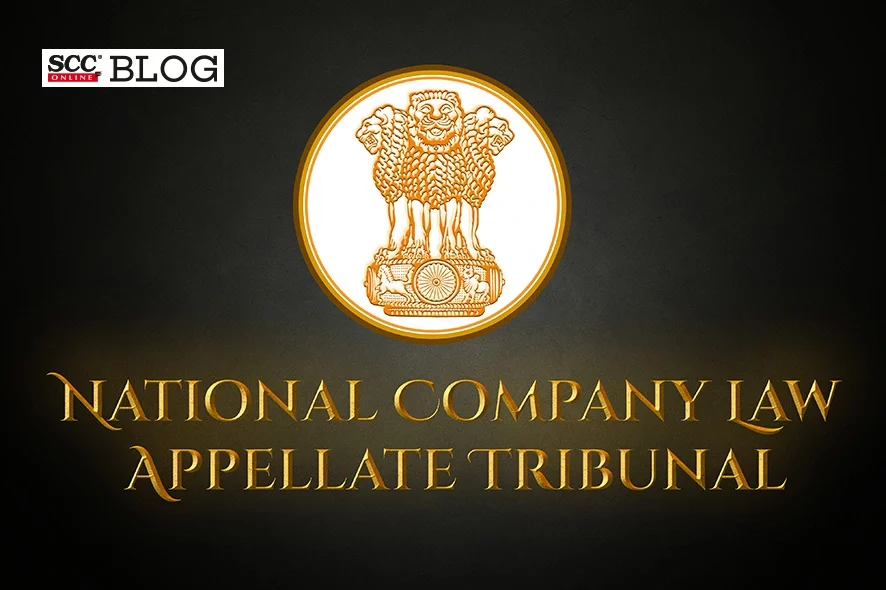National Company Law Appellate Tribunal, New Delhi: In a case involving a dispute over the distribution of the amount offered for secured creditors under the Resolution Plan, a 3-member bench comprising of Ashok Bhushan, J.*, Mr. Barun Mitra (Technical Member) and Mr. Arun Baroka (Technical Member), while dismissing the appeal, held that the Committee of Creditors (CoC)’s decision to distribute proceeds based on the proportion of admitted claims was in accordance with the IBC and reiterated that the dissenting financial creditor’s entitlement is to receive the minimum amount specified in Section 53(1) and not distribution based on security interest.
Factual Matrix
In the instant matter, the appellant, ICICI Bank Ltd. and financial creditor of respondent, BKM Industries Ltd., challenged the impugned order dated 01-03-2023 contesting the rejection of the applicant’s plea for the Resolution Professional to consider the priority of distribution in the Resolution Plan and the dissenting financial creditor’s priority.
In the present case a Corporate Insolvency Resolution Process (CIRP) initiated on 30-12-2020 by Trimurti Associates (P) Ltd. The appellant submitted a claim of Rs.15,52,73,428, admitted by the Resolution Professional, and participated in the CoC. Uniglobal Papers (P) Ltd. proposed a Resolution Plan distributing proceeds among secured creditors proportionate to their admitted claims.
A dispute arose in CoC meetings regarding the distribution methodology, with the appellant advocating for security interest consideration. The CoC voted in favor of distribution based on outstanding debt/voting share, leading to the approval of Uniglobal Papers (P) Ltd.’s Resolution Plan on 17-05-2022. The appellant, a dissenting financial creditor, filed an application seeking priority consideration in distribution based on security interest.
Parties’ Contentions
The appellant contended their first charge on the Corporate Debtor’s assets entitled them to receive Rs.13.52 crores from the total liquidation value of Rs.24.5 crores. The appellant argued for priority based on security interest and challenges the CoC’s commercial wisdom.
On the other hand, the Resolution Professional and CoC argued that the distribution methodology was approved by CoC, citing the statutory entitlement of dissenting creditors under Section 30(2)(b) of the IBC. It was contended that CoC’s approved methodology is binding, and dissenting creditors are entitled only to the liquidation amount.
Moot Point
Whether distribution to Secured Creditor has to be made as per the admitted claim/debt or on the basis of security interest over assets of the Corporate Debtor?
Legal Principles
-
Section 53(1) of the IBC establishes the order of priority for distribution of assets in case of liquidation.
-
Section 30(2)(b) outlines the entitlement of dissenting financial creditors to a minimum amount, not less than liquidation value, which is not contingent on the distribution based on security interest.
-
Commercial wisdom of the CoC is crucial in determining the viability and feasibility of a resolution plan.
-
A dissenting secured creditor’s entitlement is to receive the minimum amount specified in Section 30(2)(b) of the IBC
NCLAT’s Assessment
The NCLAT observed that the CoC approved the distribution based on the proportion of admitted claims of secured lenders in the 15th CoC Meeting. It was observed that the appellant’s objections were overruled, and the voting results showed approval of distribution based on admitted claims. The Resolution Plan was subsequently approved in the 16th CoC Meeting with a vote share of 78.79%.
The NCLAT considered Section 30(2)(b) of the IBC, which outlines the payment of debts to operational creditors and financial creditors who do not vote in favor of the resolution plan. The NCLAT observed that the dissenting financial creditor’s entitlement is the minimum amount under Section 30(2)(b), and distribution as per security interest is not mandated. The NCLAT also emphasised that the dissenting financial creditor is entitled to receive not less than the amount specified in Section 53(1) of the IBC, which prioritizes the distribution of assets.
The NCLAT cited the definition of ‘debt’ in Section 3(11) of the IBC and highlighted the legislative scheme, emphasising distribution as per the debt rather than security interest. The NCLAT referred to its previous decision in Small Industries Development Bank of India v. Vivek Raheja, 2022 SCC OnLine NCLAT 3979, where a similar claim for distribution as per security interest was rejected. The NCLAT also cited the India Resurgence ARC (P) Ltd. v. Amit Metaliks Ltd., (2021) SCC OnLine SC 409, emphasizing the commercial wisdom of the CoC and rejecting the appellant’s claim for higher payment based on security interest.
The NCLAT concluded that the entitlement of dissenting financial creditors is the liquidation value of their debt, and the commercial wisdom of the CoC determines the distribution among creditors.
NCLAT’s Decision
The NCLAT upheld the CoC’s decision on the distribution mechanism, rejecting the appellant’s plea for distribution based on security interest. The NCLAT dismissed the appeal, affirming the decision of the Adjudicating Authority.
[ICICI Bank Ltd. v. BKM Industries Ltd., 2023 SCC OnLine NCLAT 2169, order dated 06-11-2023]
*Judgment by Justice Ashok Bhushan
Advocates who appeared in this case :
Mr. Krishnendu Datta, Sr. Advocate with Mr. Udit Mendiratta, Ms. Niharika Sharma, Mr. Shivkrit Rai, Mr.Rajat Sinha, Mr. Tejas D. Jha, Counsel for the Appellant
Mr. Rishav Banerjee, Mr. Rajarshi Banerjee, Mr. Shambo Nandy, Counsel for the Respondent No. 1
Mr. Avrojyoti Chatterjee, Mr. Rajiv S. Roy, Mr. Siddharth Dhingra, Mr. Zoyeb Khan, Ms. Jayasree Saha, Mr. Shankar Mali, Counsel for the Respondent No. 2







